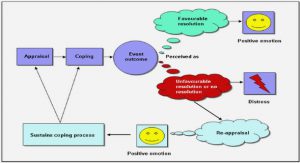Get Complete Project Material File(s) Now! »
Origins of the Problem
Modern economic theory of self-interest is based on the presumption that human economic relations are solely motivated by self-interest. Related to this presumption is the idea that individuals would promote the welfare of society through the pursuit of their self-interests rather than when they deliberately try to enter into economic relations that are based on altruistic sentiments. It is also alleged that self-interest or individual vices, rather than virtues, are the reason for the flourishing of wealth. Self-interest in modern economics derived from Adam Smith’s Wealth of Nations in which he argued that economic relations are about appealing to each other’s self-interest or greed.
Significance of the Study
The idea of employing African humanism and process philosophical anthropology in critiquing the theory of self-interest in modern economic discourse has never been done anywhere to my knowledge. For this reason, this thesis will have a unique contribution to make in this aspect of economic ethics. In most of our universities, economics is usually treated like disciplines such as physics, biology and chemistry. The underlying assumption amongst modern economists is that economics is not a humanistic discipline that has a direct bearing on people’s lives. Here I am insisting that economics should be treated as a humanistic discipline that should be pursued within the parameters of a relational ethic.
The Religious Significance of the Invisible Hand
Religiously, Adam Smith’s context of early modernity was also flourishing with debates on whether God was a Cosmic moralist or not. Deists within modernity advocated a form of natural religion with a Supreme Being whose will was enshrined in the principles of morality. They believed “in a world ordered by natural law, and in the inference of knowledge concerning this world by observation of its workings” (Kaye 1988: x1). Deists “had faith in a cosmology and an ethics of divine origin and of eternal and universal truth and applicability”. For them there was always an “inevitable agreement of the will of God with the results of human actions” (Ibid.). The philosophical foundation of Deism lay primarily in the conception of natural law. The understanding was that “every law framed by human beings bears the character of a law exactly to that extent to which it is derived from the law of nature”.
Polanyi’s Critique of Smith’s Economic Liberalism
Karl Polanyi23 (1968: 71-85) came up with two arguments to show that the economic idea of a self-regulating market which brings about a spontaneous order is illusory. He argued that “no society can exist without a system of some kind which ensures order in the production and distribution of goods. …[N]ormally, the economic order is merely a function of the social, in which it is contained”. To support this insight, Polanyi made a historical analysis of the market since early modernity, in which he demonstrated that the idea of a self-regulating market was only a nineteenth century development in Western civilisation which was non-existent in the previous epochs.
Economics of Self-Interest in Charles Darwin’s Theory of Evolution
In Darwin’s On the Origins of Species25 self-interest became a mechanism of natural selection. The theory that has gone concurrently with the socio-economic theory of selfinterest is the theory that those who are poor are those species that could not adapt. These less adapted (the poor) would be overrun by the rich, who in this case are the well adapted. Sometimes the less adapted will be naturally exterminated. Kenneth Lux (1990: 147) caricatured this reasoning as follows: The poor generally represented an inferior variety. By being driven into undesirable and non-life-supporting environments, they would naturally tend to die off, and thus the species of Homo sapiens would strengthen, evolve, and progress. Social welfare legislation was bad because it interfered with this natural process and thus retarded social evolution.
TABLE OF CONTENTS
- ACKNOWLEDGEMENTS
- ABBREVIATIONS
- TABLE OF CONTENTS
- CHAPTER ONE: INTRODUCTION
- 1.1 Statement of the Problem
- 1.1.1 Summary
- 1.1.2 Origins of the Problem
- 1.2 The Limitations of the Study
- 1.3 Significance of the Study
- 1.4 Method of Investigation
- 1.5 Plan of the Study
- PART I: THEORY OF SELF-INTEREST AND MODERN ECONOMIC DISCOURSES
- 1.1 Statement of the Problem
- CHAPTER TWO: EARLY GREEK AND JUDEO-CHRISTIAN DISCOURSES ON SELF-INTEREST
- 2.1 Introduction
- 2.2 Self-Interest Defined
- 2.3 Self-Interest and Greek Philosophical Discourses
- 2.3.1 Plato and the Pythagoreans
- 2.3.2 Aristotle
- 2.4 Self-Interest and the Judeo-Christian Tradition
- 2.4.1 The Essenes of Qumran
- 2.4.2 St Ambrose of Milan
- 2.4.3 Gregory of Nazianzen
- 2.4.4 St. Basil the Great
- 2.4.5 St. Augustine
- 2.4.6 Thomas Aquinas
- 2.5 Self-Interest and the Reformation Era
- 2.6 Conclusion and Observations
- CHAPTER THREE: EARLY MODERNITY AND THE ECONOMIC THEORY OF SELF-INTEREST
- 3.1 Introduction
- 3.2 Definition of Modernity
- 3.3 Self-Interest and Political Theories of Early Modernity
- 3. 3.1 Machiavelli and Political Liberalism
- 3. 3.2 Self-Interest in Hobbes’ Theory of Social Contract
- 3.3.3 David Hume and Self-Interest in Politics
- 3.4 Self Interest and Early Modern Economic Liberalism
- 3.4.1 Mandeville’s Parody of Egoism that benefits the Common Good
- 3.4.2 Self-Interest in Adam Smith’s Liberal Economic Theory
- 3.4.3 Self-Interest and the Invisible Hand
- 3.4.3.1 The Religious Significance of the Invisible Hand
- 3.4.3.2 Smith’s concept of the Invisible Hand and the Sociological Theory of Spontaneous Orders
- 3.4.4 Polanyi’s Critique of Smith’s Economic Liberalism
- 3.5 Conclusion and Observations
- CHAPTER FOUR: OTHER CONTRIBUTIONS TO AND DEBATES ON THE THEORY OF SELF-INTEREST IN EARLY MODERN ECONOMIC DISCOURSE
- 4.1 Introduction
- 4.2 Economic Significance of Self-Interest and the Theory of Evolution
- 4.2.1 Malthus’s Justification of Selfishness through Demographic Theory
- 4.2.2 Economics of Self-Interest in Charles Darwin’s Theory of Evolution
- 4.2.3 Self-Interest and the Social Biology of Herbert Spencer
- 4.2.4 Philip Wicksteed and the Moral Neutrality of Self-Interest
- 4.3 Self-Interest as the Dehumanising aspect of the Liberal Economy
- 4.3.1 John Ruskin
- 4.3.2 Karl Marx’s Humanistic Argument
- 4.3.3 Self-Interest and Veblen’s Institutional Evolutionary Economics
- 4.4 Conclusion and Observations
- CHAPTER FIVE: SELF-INTEREST AND LATE MODERN ECONOMIC THOUGHT
- PART II: A CRITIQUE OF SELF-INTEREST FROM THE PERSPECTIVES OF
- AFRICAN HUMANISM AND PROCESS PHILOSOPHICAL ANTHROPOLOGY
- CHAPTER SIX: AFRICAN HUMANISM AND ITS IMPLICATIONS FOR THE THEORY OF SELF-INTEREST
- CHAPTER SEVEN: THE IMPLICATIONS OF PROCESS PHILOSOPHICAL ANTHROPOLOGY FOR THE THEORY SELF-INTEREST
- CHAPTER EIGHT: RECOMMENDATIONS AND CONCLUSIONS SECTION A: BEYOND SELF-INTEREST: TOWARDS A HOLISTIC ETHIC
DOCTOR OF THEOLOGY Project Topics




